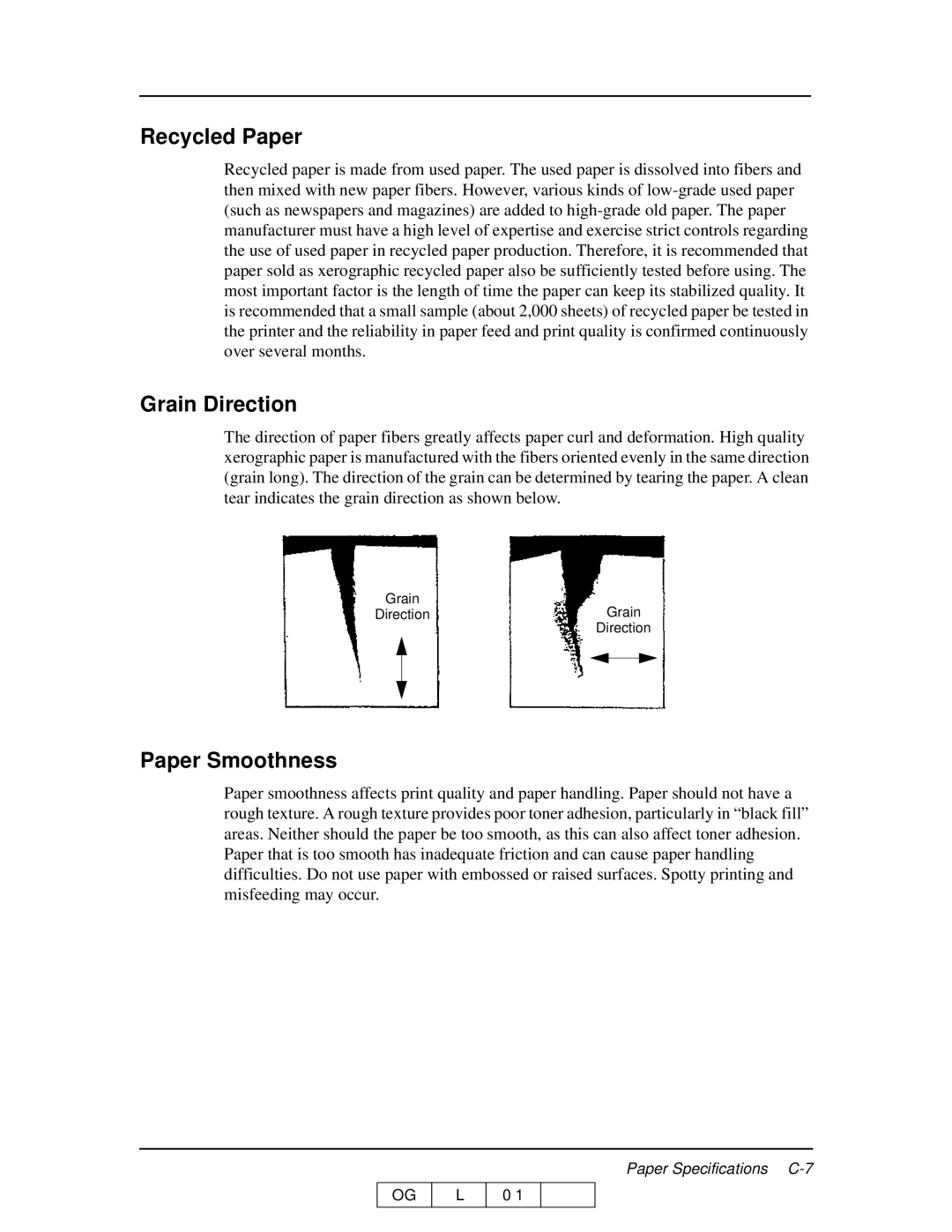
Recycled Paper
Recycled paper is made from used paper. The used paper is dissolved into fibers and then mixed with new paper fibers. However, various kinds of
Grain Direction
The direction of paper fibers greatly affects paper curl and deformation. High quality xerographic paper is manufactured with the fibers oriented evenly in the same direction (grain long). The direction of the grain can be determined by tearing the paper. A clean tear indicates the grain direction as shown below.
Grain
DirectionGrain
Direction
Paper Smoothness
Paper smoothness affects print quality and paper handling. Paper should not have a rough texture. A rough texture provides poor toner adhesion, particularly in “black fill” areas. Neither should the paper be too smooth, as this can also affect toner adhesion. Paper that is too smooth has inadequate friction and can cause paper handling difficulties. Do not use paper with embossed or raised surfaces. Spotty printing and misfeeding may occur.
OG
L
Paper Specifications
0 1
